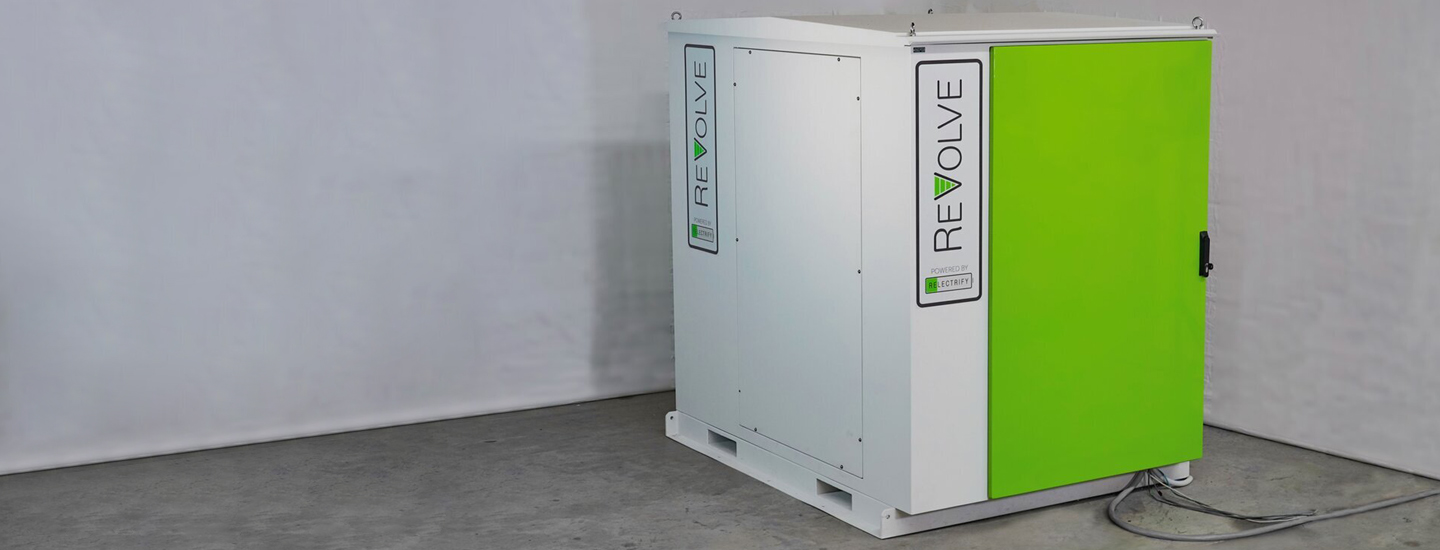

This website uses cookies to improve the user experience. We use cookies in accordance with our NRMA Group Cookie Policy.
This website uses cookies to improve the user experience. We use cookies in accordance with our NRMA Group Cookie Policy.

Constructed with second-hand batteries salvaged from used electric vehicles, ReVolve can power buildings in both grid-connected and off-grid configurations due to a grid-compliant 400–480 volt AC output.
While the batteries are currently sourced from used Nissan Leaf models in the US – due to the model’s age and popularity in the country – Relectrify told the NRMA it will consider sourcing batteries locally once the Leaf's popularity and used-car market grows to a size where the option is feasible.
The initial rollout of ReVolve will be supported by the Australian Renewable Energy Agency (ARENA), an Australian Government agency tasked with increasing innovation and supply of renewable energy in Australia. Relectrify’s project will cost a total of $3.3m, with $1.49m coming from ARENA.
“Second-life batteries have significant potential to drive down costs,” ARENA CEO Darren Miller said.
“[Relectrify’s] technology could be rolled out in a range of applications such as solar integration, providing backup power on farms and to microgrids, deferring the need for network upgrade and replacing diesel generators.”
Marketed for commercial and industrial use, ReVolve is available in capacities ranging from 120kWh (at 36kVA continuous power) to 2MWh.
By comparison, electric car maker Tesla’s Powerwall BESS – intended for home-use – has a capacity of 13.5kWh, with the average Australian home consuming around 19kWh per day, according to LG Energy.
The concept of repurposing electric car batteries to power buildings is not new, however. In July 2020, Nissan Australia announced it would introduce vehicle-to-grid technology – allowing bi-directional charging – on its new LEAF electric car after the brand first trialled the concept in Japan in 2011.